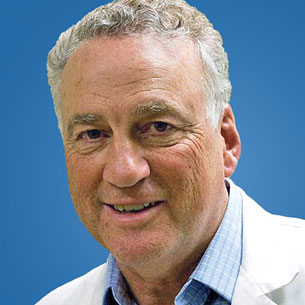Earlier, I attempted to explain the excitement surrounding the use of the checkpoint inhibitors and activated T-cells to fight cancer. Now the New York Times has done an excellent series on this approach which is worth reading, and no doubt more comprehensive and comprehensible than my effort.
For prostate cancer, there are both challenges and some early positive results that remain intriguing. An excellent review article published in April reviews the completed and ongoing efforts to harness the immune system in prostate cancer specifically. As the authors note, there have been variable results. One of the key challenges is to identify those patients who will benefit from the treatment and to date, using antibodies to stain the cancer cells that are making the PD-1 ligand that turns off the immune system has been challenging, since there are no accepted reproducible tests yet. Nevertheless, as demonstrated in this article, some patients do seem to have remarkable responses that offer real hope if the science continues to advance. If you read that abstract, pay attention to the issue of auto-immune side effects: “One had grade 2 myositis, one had grade 3 hypothyroidism, and one had grade 2 hypothyroidism. None of these patients had a response.” What this means is that the immune system was activated, but instead of attacking the prostate cancer, it attacked their muscle or thyroid, and apparently ignored the evil cancer cells. This has been a general problem in the entire field.
Yet, in melanoma, where the greatest progress has been made, we are learning to walk the line between killing tumor cells and damaging the normal tissue with immune therapy.
My bias is that with continued progress in the vaccine field in prostate cancer (where we have one of the only vaccines approved for treating cancer, Sipuleucel-T), combining a vaccine with an immune booster type of treatment will ultimately provide the best results. Various trials of this sort are already underway.
This post originally appeared on prost8blog, a blog to help patients and their families understand various aspects of prostate cancer, and is republished here with permission from Dr. Glodé.


Comments
Bob Sokolove
Dec, 12 2022 4:36 PM
I had prostate cancer. It was debilitating, painful, and, in many ways, life-changing. Prostatitis affected my life massively – everything from sex, travel, work, and eating. Prostate cancer has taken a lot from me. First, it took my grandfather, then my dad, and uncles so being diagnosed with prostate cancer did not come as a complete shock. I couldn’t get an erection and had pain in my lower back. It felt like I had a vice around my waist. At that point, I was hammering all the medication I could. I was on three different antibiotics, and four different painkillers, but just don’t work for me. I have just adopted natural treatment by Dr. Ling and other nutritarian diet and I have been 97% recovered with no symptoms. I am living proof that if you catch prostate cancer, you can go back to living a normal life. If you need help with prostate cancer and health in general, contact him with this email: wenliangherbs@gmail.com